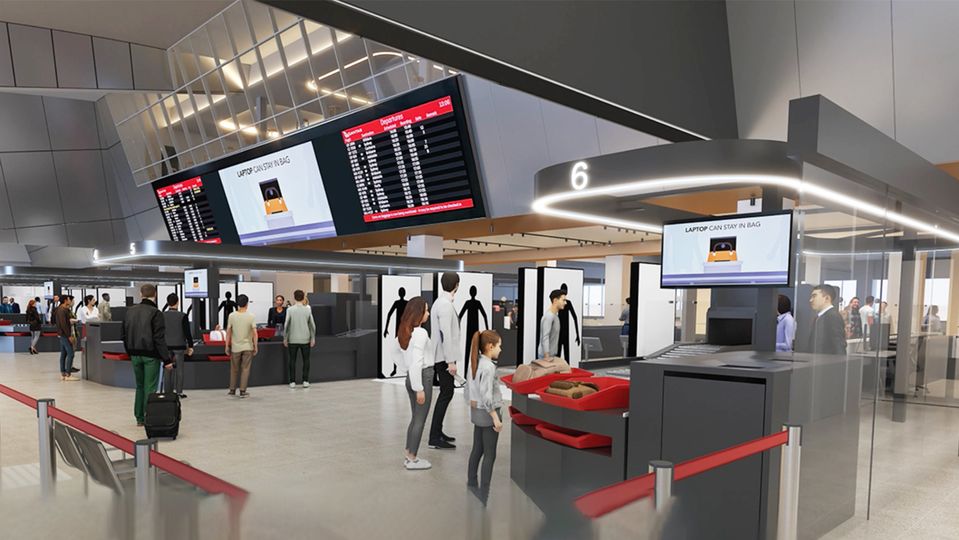
Qantas domestic passengers flying out of Melbourne will soon be able to leave laptops, liquids, and aerosols in their carry-on bags as Melbourne Airport rolls out a significant security upgrade designed to create a "smoother, enhanced experience for travellers" at Terminal 1.
The first phase of the project begins this week with the construction of a temporary security checkpoint equipped with new computed tomography (CT) scanners at the eastern end of the Qantas domestic terminal.
If everything goes as scheduled, the six-lane checkpoint is expected to be operational by August 2024.
When the new checkpoint is up and running, you won't have to remove laptops or aerosols from your bags. These time-saving scanners, already in use at Perth, Adelaide, Canberra, the Gold Coast, and Melbourne Terminals 2 to 4, create 3D images that can be viewed and rotated on three axes, streamlining the security process.
After this phase is complete, the focus will shift to renovating the existing security area. This part of the project is expected to be finished by December 2025 and will also include the installation of full-body scanners.
Melbourne isn't the only airport getting a facelift; Brisbane and Sydney are also set to upgrade their security scanners by the end of 2025 to comply with the Federal Government's new airport security mandates.
Sydney Airport already features 3D scanners in its T3 Qantas domestic terminal, and many but not all lanes in the T1 international terminal are equipped with them.
Plans are in place to upgrade the remaining lanes at T1 and the T2 domestic terminal, which serves Virgin Australia, Rex, Jetstar, and other domestic airlines.
Brisbane Airport is also on track to replace all its scanners in both the domestic and international terminals by 2025 to comply with the Federal Government's Strengthening Aviation Security Initiative, aligning Australia's airport security with global standards by 2025.
Despite ongoing upgrades, the Australian Government has no intention of changing or eliminating the current 100ml/100g limit for liquids, alcohol, and gels on international flights.
Liquid limit raised to 2 litres
In contrast, the UK has taken a different approach, with airports working toward a Government-imposed deadline to replace outdated security scanners with modern 3D technology by June 2024.
London City Airport was the first major UK airport to complete this upgrade, achieving the milestone in April 2023. As a result, passengers are now allowed to carry up to two litres of liquids, including drinks, perfumes, and beauty products, in their cabin luggage.
Heathrow Airport has installed the new scanners in Terminals 2, 3, and 5, with plans to extend them to Terminal 4. The scale of the project is considerable, given that Heathrow has 146 security lanes to upgrade.
By June, passengers will be allowed to bring containers with up to 2 litres of fluid, ending the 100ml bottle restrictions and the practice of discarding larger amounts of liquid, no matter how valuable.
The UK isn't the first to implement this new technology: major airports like Amsterdam Schiphol and Helsinki and several in the United States already use CT baggage scanners.